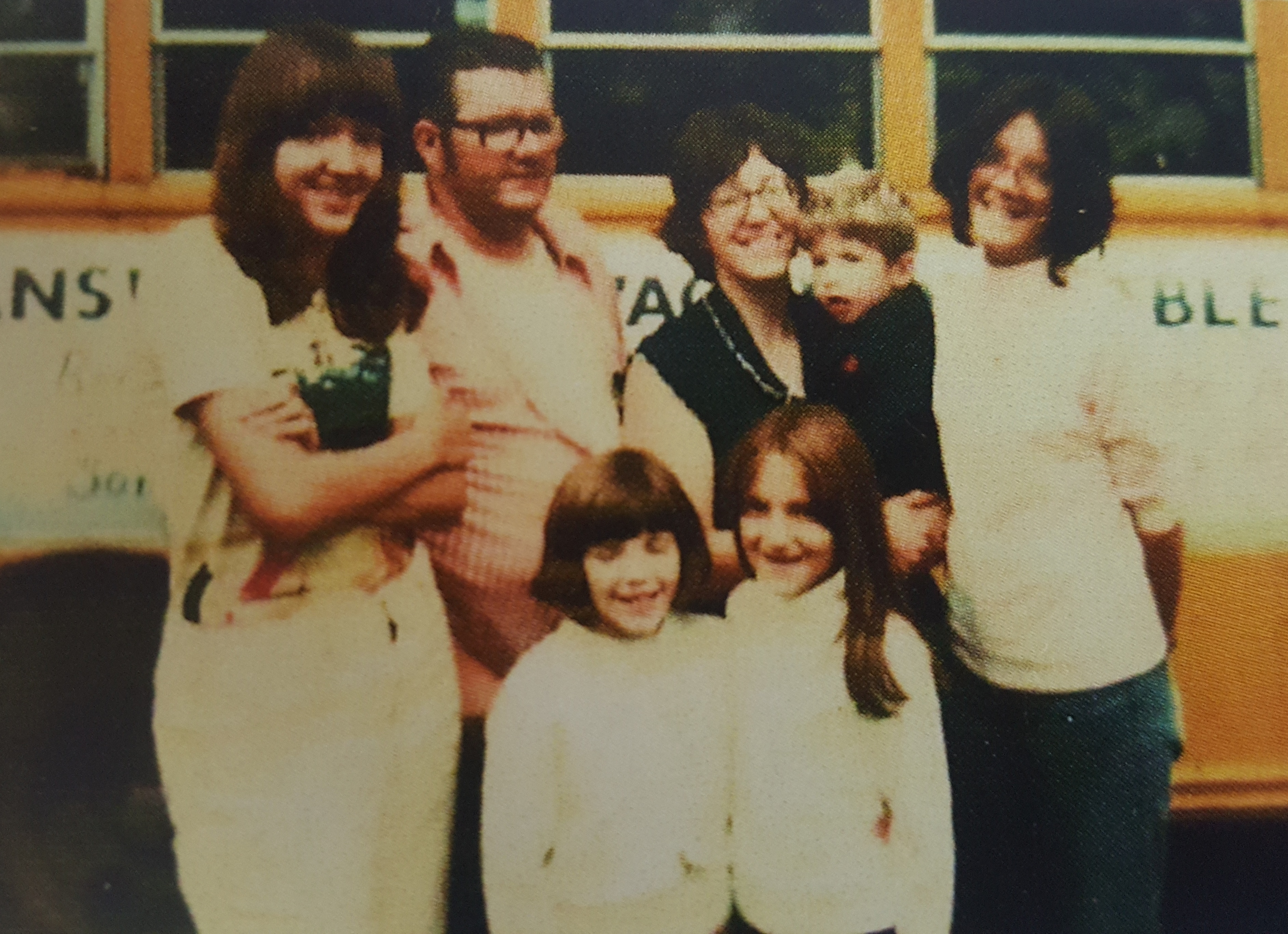View this post on Instagram
“Jenifer, you need to call my lawyer!”
“Dad?”
“I’m being held hostage! They won’t let me leave!”
“Dad, where are you?”
“I’m being held hostage! Call my lawyer. I need help! I’m in a basement at some prison on Seneca Lake. Call my lawyer!”
~
I am not a nurse or a doctor and I don’t have medical training, but I am my dad’s advocate.
My dad has dementia. When we had this phone conversation, he was in a skilled nursing facility about 15 minutes away. Not on Seneca Lake. Not in prison.
My dad was a consummate storyteller. He loved going on road trips and meeting new people. When all five of his children had moved out of the house, he and my mom moved three states away so he could go to college and become a minister. He was a man who was always doing something.
He was diagnosed with dementia years ago when there were more good days than bad.
These days, there is no hiding or denying the change in him physically, mentally, emotionally, and spiritually.
According to the Mayo Clinic, dementia is a label given to a broad category of brain diseases and symptoms. Some of the symptoms include memory loss, confusion and disorientation, hallucinations, anxiety, vision loss, mood swings, and agitation. An estimated four to five million people in the United States are reported to suffer from dementia. The broad reach of this disease means that many of us have faced or will face these situations.
When my dad was initially diagnosed, I never anticipated the impact it would have on my life. We’ve never had a close relationship, and yet I find myself as one of his most ardent and vocal advocates.
Being geographically close to him certainly played a part in how I came to be his health care proxy. But it was those panicky phone calls from him and the knowledge that this disease was more than one person—my mom—could handle, despite her best efforts, that strengthened my resolve to be his fervent advocate.
In 2017, he moved to a skilled nursing facility.
I remember being on the phone with my sisters, trying to build the courage to go to my mom and tell her that the time had come. Dad’s disease had become powerful, infiltrating their lives in a way that could no longer be managed by her or at home. We consulted with the Office for the Aging and put together a plan. I was going to get Dad and admit him into the facility.
At first, I’d cried and whined. I may even have pouted. I did not want to be the one. But we could see the impact Dad’s dementia was having on our mother. Mom talked about the overwhelming helplessness she felt on a daily basis. I knew it was time, but it was scary. I felt like we were turning a huge corner and there would be no going back.
And we did. My siblings and I ultimately decided to intervene.
Dementia is not reversible. Ground lost is lost forever. The best we can do is slow down the progression of the symptoms and manage them the best we can.
People can criticize our decision, but we knew it was the best choice for our situation and family. My sister stayed on the phone with me the whole time I drove to my parents on The Day. We were in it together and I was the one on the ground.
After four months of being in the nursing home, he tried to kill himself three times (that we know of)—every other week for a month and a half.
Answering the phone and hearing that he tried to kill himself was agonizing. How could this be my dad, the man who was a volunteer fireman my entire childhood? A heaviness settled over me. There was immense disbelief. Fear. Anger. Sadness. Hopelessness.
When the hospital attempted to discharge my dad into my mother’s care, I stood firm knowing that this was not a Safe Discharge Plan. (A Safe Discharge Plan is an important term to know and remember.)
I keep his best interests in mind when talking with doctors and caregivers. Our loved ones need someone who will fight for them and sometimes that means reminding the professionals that it is the disease and not the person. Suicide attempts are common among those with dementia when their typical coping skills are no longer recognizable to them.
There is much to be learned about dementia, and studies continue to shine light on it.
One thing in particular that they’ve found helps is improv, because it is focused on the present moment, has provided benefits to dementia patients.
“Researchers don’t expect these games to stop or slow the progress of Alzheimer’s disease, but they are investigating whether engaging the creative abilities of these early-stage patients improves their lives,” according to Julianne Hill in her article, “Improv For Alzheimer’s: ‘A Sense Of Accomplishment.'” There has also been promising results in the use of music to improve moods and lessen anxiety.
The fact remains that dementia robs its victims of dignity and memories as they morph into a completely different person than the one known by their friends and family. Family and friends struggle to care and love those with dementia. Family members consider the path of treatment, make arrangements at work for emergencies that may arise, and reconcile the loss of the person they once knew and the new personality that has arrived.
Here are the most significant things I’ve learned over the past two years:
>> Their Reality is not our Reality.
You will not be able to reason with them. There is no proof I could offer that will bring my dad back to our reality. For example, this means fighting our instincts to remind them of where they live or if they are married. Attempts to correct his perceptions lead to increased stress and anxiety.
>> “Shoulds” have no place here.
“I should go see him.” “My brother should do this or that.” We need to take care of ourselves first and be kind to those in the circle. There is no right way when going through this. Some days, you will be able to do more than others. Some days, distance is what you’ll need. That is okay. Some days, your brother won’t be able to go when the nurse calls. That is okay. Guilt is not helpful or loving. We need to be gentle and compassionate with each other.
>> Find local support.
We found our greatest asset in this journey at our local Office for the Aging. They put us in contact with local support groups who offered an attentive ear and insight. They also were invaluable in helping us get various forms completed and submitted for Medicare and working with the skilled nursing facilities.
>> Work with what you have.
When you find yourself and your family in one of the inevitable crises that arise, don’t lament over what you do or don’t have. This will only waste precious time and energy. As we hear so often, it is what it is. Focus on the resources you do have, the options that are available. Once you are through the crisis, you can revisit those areas where you can effect change.
>> Establish a healthcare proxy/durable power of attorney early.
Get legal documents in order before the crisis. Dementia is a progressive disease. Depending on the state you are living in, either a healthcare proxy or a durable power of attorney needs to be established. My parents had the foresight to establish this early on and insisted the whole family be aware and understand the decisions despite the reluctance of their children.
During our last visit, my dad knew who I was and who my children were. We talked about the frustration with his boss who won’t tell him what his assignment is. It was a good visit and I’m thankful that he is no longer in prison.

Resources:
For More Information About Dementia:
NIA Alzheimer’s and related Dementias Education and Referral (ADEAR) Center
1-800-438-4380 (toll-free)
Email / Website
Singing in the Rain–Weathering the Storm of Dementia with Humor, Love, and Patience by Vicky Rupport and Ann Henderberg. Vicky and Ann have chronicled their experience and offer a form of comradery and support.











Read 3 comments and reply